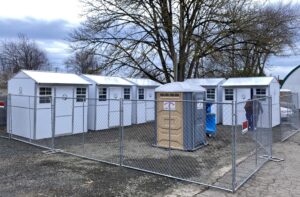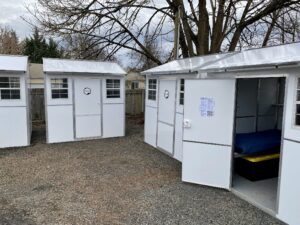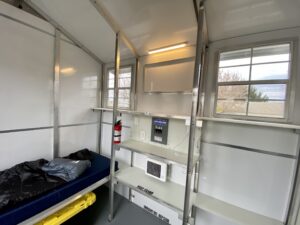
PeaceHealth funding covers the construction and operation of a pod of shelters with accessible toilets and handwashing stations.
EUGENE — In a fiscal partnership with PeaceHealth, St. Vincent de Paul has opened five personal-sized Pallet shelters as part of its growing Hwy. 99 service area for the local unhoused population.
The $74,000 grant specifically funds the construction and operation of the five small structures, which are dedicated to temporarily sheltering unhoused people upon their discharge from inpatient stays at PeaceHealth hospitals and emergency rooms. After initially opening them at Dawn to Dawn, the shelter site at 717 Hwy. 99 N., SVdP staff relocated the PeaceHealth-reserved shelters to another pod adjacent to the Eugene Service Station, 450 Hwy. 99 N.
Leading up to this partnership, PeaceHealth recognized shelter capacity shortages for the unhoused, largely driven by the COVID-19 pandemic and new social distancing guidelines. This impacted the unhoused community at large as well as PeaceHealth’s ability to place patients in a safe environment after their hospital stay. PeaceHealth and SVdP then collaborated on ways to address the growing concerns with shelter capacity.
Todd Salnas, chief operating officer for the PeaceHealth Oregon network, said the hospital Care Management teams are elated to have the Pallet program as a resource.
“PeaceHealth’s compassionate medical social workers do amazing, tireless work to locate the best possible discharge options for our unhoused patients,” Salnas said. “We are thrilled to have the opportunity to increase the number of available options by funding this program, and to be partnering with such an outstanding organization. These patients will be in good hands with St. Vincent de Paul.”
SVdP Executive Director Terry McDonald noted that the opportunity to work with PeaceHealth directly, to “ensure a seamless transfer of patients from the hospital to a caring facility where we are, is a hope that we have had for many years. Being able to provide a continuum of services for vulnerable populations that are unhoused is a game-changer.”
Each Pallet house, made of quick-assembly modular panels, includes lockable doors and windows for the security and privacy of guests.
Each shelter, made of quick-assembly modular panels, is lockable for privacy and security.

Each shelter, made of quick-assembly modular panels, is lockable for privacy and security.
The shelters for transferred patients are near the The Hub, a modular clinic providing basic physical and mental health-care services at the Dawn to Dawn site. SVdP and Willamette Family Inc., partners in operating The Hub, will have trained staff available to monitor and assist the PeaceHealth shelter guests — including an SVdP site manager available 24/7 — and to do more if necessary.
“Besides just providing a place, we have people on site with some medical skills and an ability to actually treat people,” McDonald said. “So I love this plan; it’s a great partnership.”
These five shelters were among 25 delivered in December for use at SVdP’s Dawn to Dawn and Eugene Service Station properties. Manufactured by Pallet, a Washington state-based company, the modular aluminum and composite-panel structures are designed for rapid assembly and are increasingly used nationwide for disaster relief and sheltering the unhoused.
The PeaceHealth funding covers a one-time cost of $9,920 for site preparation, electrical work, fencing, and other construction costs. Then it provides for operational costs totaling about $64,000, payable over three months, which cover staffing oversight of shelter guests; utilities and garbage service; and an accessible toilet and hand-washing station.

The interior of each shelter includes lighting and heating, shelving, and storage space beneath the bed.
Pallet shelters are the newest in an expanding list of services offered at SVdP’s Dawn to Dawn and Eugene Service Station sites. Dawn to Dawn now includes a military-style “tent city” that shelters 105 people while adhering to COVID-19 spacing requirements; a covered dome for the safe quarantine of unhoused individuals who had a potential COVID-19 contact; The Hub, for onsite health services; and the additional Pallet shelters, which present another transitional housing opportunity for people on the path out of homelessness. Meals, showers, and other services are provided at Eugene Service Station.
